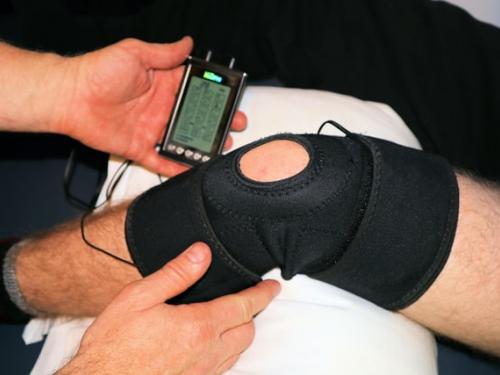
There is an increasing demand for physiotherapists in public health sectors within the NHS, sports teams, armed forces, GP surgeries, nursing homes or in private practices. Physiotherapists help people affected by illness, injury or disability through movement, manual therapy, exercise and education. They maintain health for people of all ages, helping patients to manage pain and improve their everyday life. To become a Physiotherapist you will need a BSc. (Hons) degree in Physiotherapy.
What are the university entry requirements for Physiotherapy degrees?
To apply to universities for Physiotherapy degrees, you should have, or be working towards achieving, a relevant Access to HE Diploma in Health Science. Or, alternatively, 3 A Levels with at least one in a pure science area (Biology, Human Biology, Physics, Chemistry). Universities can advise on their particular entry requirements and they also publish these on the UCAS (Universities and Colleges Admissions Service) website.
With the A Level route, you may also be expected to have a minimum of 5 GCSEs. With the Access to HE Diploma route, you are normally only required to have 2 GCSEs in English and Maths at Grade C or above. Access to HE Diplomas are normally aimed towards adults 18+ returning to education or wishing to change to a new career. There are no upper age limits. The Diploma qualification is viewed as being equivalent to 3 A Levels. Access to HE can be studied from home via online learning or at a local college.
There are many websites that track university performance in all subject areas. Students are encouraged to research carefully which university has a good track record in the degree course they are interested in. It is also worth looking into the department that you are applying to and see what facilities are available, what sort of placements are on offer and the student satisfaction rate for each degree course.
Access to Physiotherapy Course
What do Physiotherapists do?
Physiotherapists treat and prevent injury and disease by natural means. They help alleviate pain, restore normal movement and function and aim to return the body to its natural state without chemical intervention. As well as relieving symptoms, physiotherapists teach longer-term management of musculoskeletal problems enabling people to prevent further episodes themselves. Physiotherapists combine in-depth knowledge of the body and how it works with specialised clinical skills to assess, diagnose and treat symptoms. All physiotherapists wishing to work in the UK must register with the Health and Care Professions Council (HCPC).
What personal attributes are needed to become a Physiotherapist?
-
-
- Patience and determination – often the care users recovery is over a long period so the ability to take a long view is essential
- Ability to motivate – if the process is taking time, keeping those under your care motivated to stick with the care program is key
- Supportive and compassionate – the ability to empathise with people who may feel vulnerable. Individuals, who maintain control of difficult sessions with empathy, tenderness and a sense of humour, are among the most successful therapists.
-
What are the pay and working conditions like?
-
-
- Starting salaries for qualified physiotherapists range from (Band 5) range from £27,055 to £32,934
- With experience, they can earn between £33,706 and £40,588 (Band 6)
- At a highly specialist / advanced practitioner level, you can earn between £41,659 and £47,672 (Band 7)
- Additionally, for 2023–2024, there will be a permanent 5% wage increase across all pay tiers. The wage offer, according to ministers, won't have an effect on frontline services in any way
- Physiotherapists typically work 37.5 hours a week, which may include evenings, nights and weekends. Cost of living payments are added for workers in some parts of the country. On-call allowances and overtime payments are paid in addition to the basic salary
-
Did you know?
-
- Physiotherapy was first used in Canada for returning World War 1 soldiers who needed help rehabilitating their injuries
- Physiotherapy is used to treat vertigo. The biggest symptom of vertigo is dizziness, which can affect your overall balance. Physiotherapy is a scientifically proven treatment for vertigo
- Prospects are very good for Physiotherapy with 95% of graduates finding jobs within 6 months of leaving university
How is your degree funded?
Studying to become a Physiotherapist allows you to apply for the standard student support package in the form of a student loan. Scholarships, bursaries or grants may also be available for example, through the university or your place of work.
If you would like to complete an online Access to Physiotherapy course with Academy Online Learning to obtain the level 3 Access Diploma in Health Science Professions for university entry, please complete the online enrolment form or contact us for more information by phone or email. Studying and achieving this qualification provides a flexible way of learning as it is fully online and is recognised and accepted by UK universities.
Price Options
The cost of the Access to Higher Education Diploma (Health Science Professions) and the Access to Higher Education Diploma (Business) are £1320, and can be paid in monthly instalments from £110 per month over 12 months with 0% interest. Or discounted price at £1270 (£50 saving) when paid in full upfront.
Monthly Payment |
Cost/ Month |
Total* |
|---|---|---|
Pay in full |
Pay in full
|
£
|
- |
- |
- |
12 Months |
£110 |
£1320 |
11 Months |
£120 |
£1320 |
10 Months |
£132 |
£1320 |
9 Months |
£146 |
£1320 |
8 Months |
£165 |
£1320 |
7 Months |
£188 |
£1320 |
6 Months |
£220 |
£1320 |
* Includes £150 registration fee and certification with our awarding organisation, Skills and Education Group Access
For an instalment plan that works for you, visit our:
>>> STORE PAGE >>>
0161 726 5970
for more information


